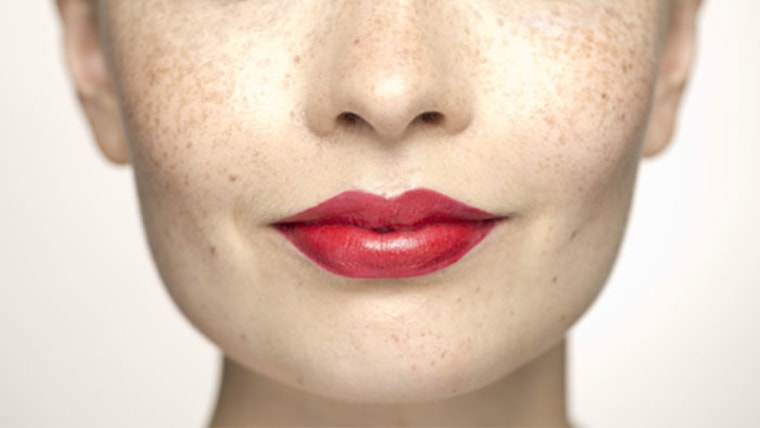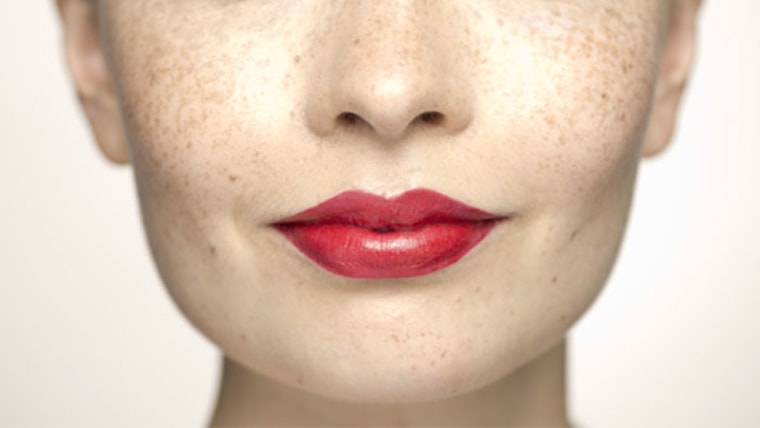
Those pretty little spots that speckle skin might be common, but freckles remain a bit of a dermatological mystery to many — including even those who have them. We interviewed three top skin specialists to get the low-down on the subject for the height of freckle season.
So, what exactly are freckles?
“Freckles, also known as ephelides, are dark spots caused by the sun,” says Dr. Joshua Zeichner, Director of Cosmetic and Clinical Research in Dermatology at Mt. Sinai Hospital in New York City. “They get darker in the summertime, when the skin is exposed to the sun, and fade themselves in the winter time.”
Caused by the sun’s ultraviolet rays, the sun stimulates the skin’s pigment-forming cells to produce more melanin in the skin but, according to Dr. Howard Murad, “although [freckles] are usually triggered by the sun, they will only form in those who are genetically pre-disposed to them."
I was born with freckles. Right?
Contrary to popular belief, nobody is born with freckles, which typically don't pop up until adolescence. That said, "freckles often ‘run in the family,’ especially in those with fair skin and light hair,” says Jessica Wu, MD, a Los Angeles-based dermatologist and Assistant Clinical Professor of Dermatology at USC School of Medicine. “Those with fair skin and red or blond hair may inherit skin pigment cells that are more sensitive to UV rays, so they produce more melanin pigment in those spots.”
So how do I know if my “spots” are actually freckles or something else?
“Freckles are often confused with sun spots, A.K.A. lentigos,” says Zeichner. Typically freckles are found only on sun-exposed parts of the skin like the face, arms, legs, and few or none on their breasts or buttocks, “unless they’re nudists”, jokes Wu.
Are freckles dangerous?
The spots themselves are absolutely nothing to fear, but, cautions Murad, “those who are genetically pre-disposed to freckles are often fair skinned as well, which in turn makes them more susceptible to skin cancers.” Wu agrees: “I do warn my patients with freckles to be extra diligent about using sunscreen, especially in the areas that are freckle-y. These areas have had more exposure to UV rays."
Can you (safely) fade your freckles?
Freckles can be lightened with proper treatment, and new freckles often fade on their own. “To fade freckles topically, look for products with vitamin C, azelaic acid, ellagic acid, bear berry and licorice root, which can be used to suppress and gradually lighten epidermal hyperpigmentation,” tells Murad. “They may also respond to prescription ingredients such as Retin A or hydroquinone,” states Wu. “I often use an Intense Pulsed Light (IPL) laser to fade freckles. The procedure takes 20 minutes.”
Is it possible to stop freckles from forming?
As with many things in life, prevention is key. “Wear sunscreen every day as part of your regimen, like brushing your teeth. [SPF] can help prevent [the formation and] darkening of freckles, sun burn, skin cancers and wrinkles,” says Zeichner.
So what does it all mean?
Safe sun practice is important for everyone, but having freckles means you need to be extra careful, especially when making sure your skin is protected with a broad-spectrum SPF. “You have inherited a predisposition to freckles, and you are likely to get more of them — in addition to risk of skin cancer — if you don’t use sun protection,” warns Wu.
